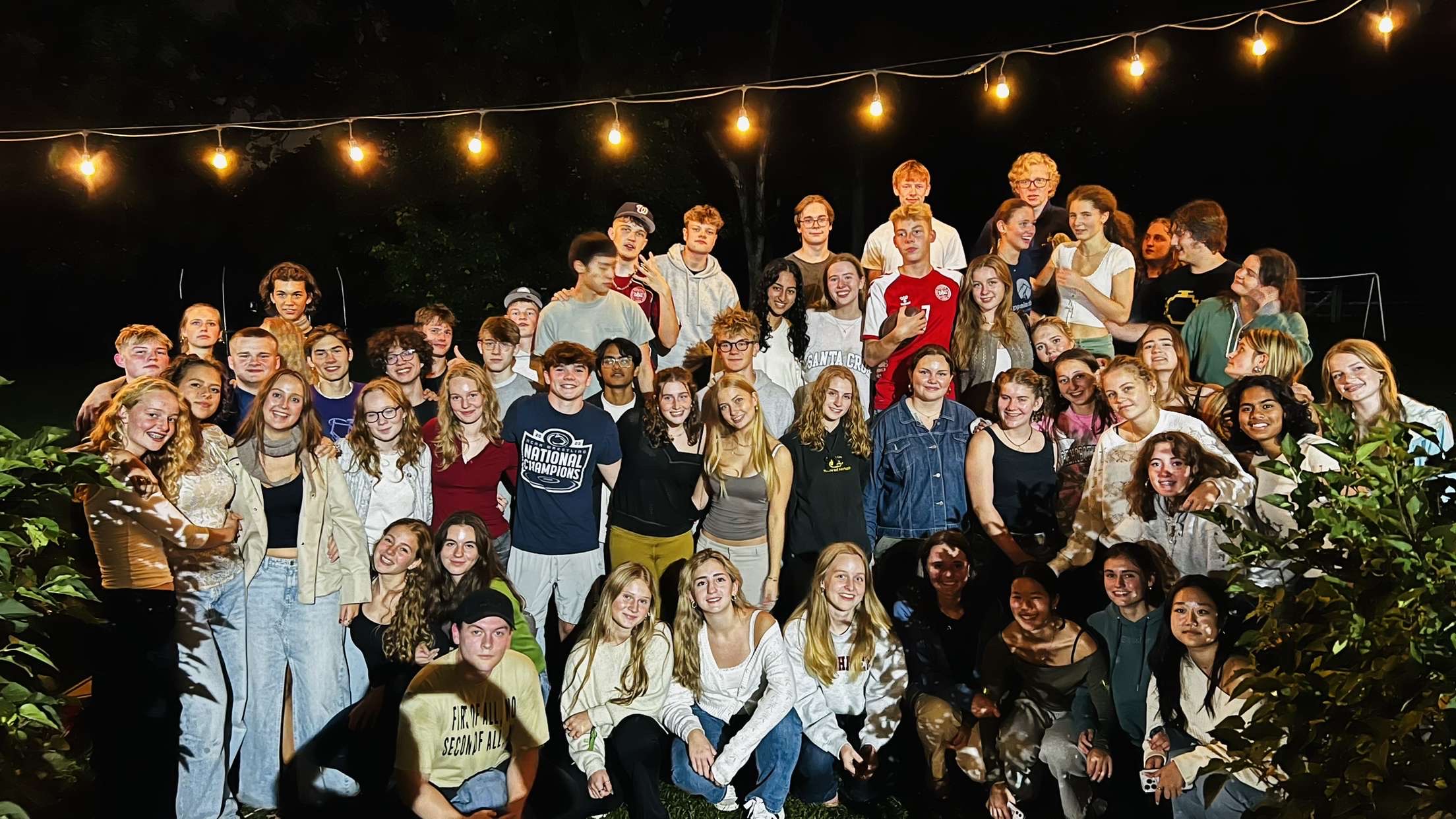By Danica Bergen & Sari Steinberg
School buses, squirrels, and Raising Canes: these are components of the United States that have become mundane to most Americans, but to the 2024-2025 Danish Exchange students, they were symbols of an entirely different world. This fall, Helsingor students traveled to the United States for the 29th year in a row to stay with Great Valley students. The experience ultimately impacts all participants’ perspectives of the world and demonstrates that while the Danish and American ways of life are entirely different, we are all inherently the same.
Participants enter the program with little knowledge of the small aspects of a foreign country’s culture, but they expand their knowledge as they immerse themselves in this new experience. Both the Danish and American students learned new things about one another’s culture when the Danes visited America.
“A difference is that they are a lot closer than we are,” said American participant Veronica Merinova, “In the aspect where they have been together with the same class for four years, so they treat each other like family, compared to us where we are always changing classes.”
This is the Danish principle of Hygge, or the idea of surrounding yourself with close friends. Many of the Danish students recognized that socializing in America is vastly different from Hygge. In an exclusive interview with the Surveyor, program manager Dr. Morabito shared that Americans often appear friendlier and more extroverted as compared to people in Denmark. Statements like “Have a nice day” and “Good morning” are foreign to the Danes. The Danes were surprised to witness that surface-level small talk that Americans often engage in.
Additionally, the Danes were shocked at the “hustle culture” that is present in American schools. From taking as many AP classes as possible to playing sports to volunteering to getting leadership in a variety of clubs, American high school students focus on filling up their schedules to the maximum. Meanwhile, Helsingor Gymnasium (the school which the Danish students attend) does not even offer school-sponsored sports like Great Valley does. The work culture is thus much less rigorous than that in America.
“We work to live, instead of living to work,” said Danish student Augusta Wichmann.
This difference in ideology could be due to the Danish Jante Law. This law encourages the people of Denmark to respect others, integrate into social norms, and live a life free of envy, jealousy, and pride. The law states that you shouldn’t think you are better than others. By experiencing life through this mindset, many of the Danes feel less pressure to prove themselves as better than others and participate in the hustle culture that has become defining to modern America.
Despite these massive cultural and social differences, the Danish and American students were essentially the same.
“We laughed at the same jokes, enjoyed the same activities, and loved spending time with one another,” said American student Poojita Gutta, “In essence, the program demonstrated that despite being from different countries, we are all teenagers and are really just the same.”
America may be a different world complete with yellow school buses and scattered political campaign signs, but it became home for the Danish Exchange students. The incredible memories and lifelong connections made show that as a globe, we can unite in our shared human experiences.

